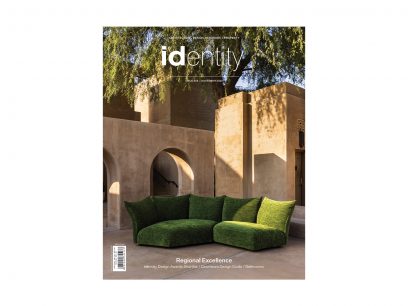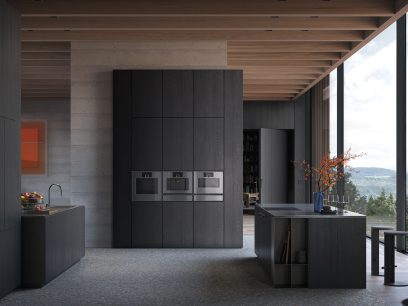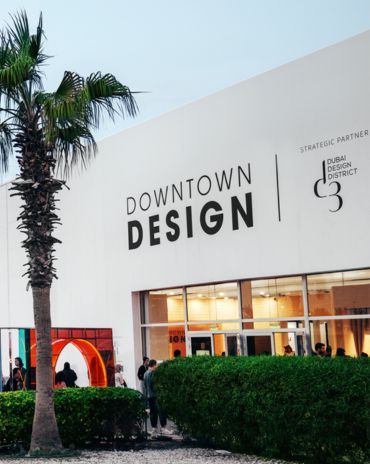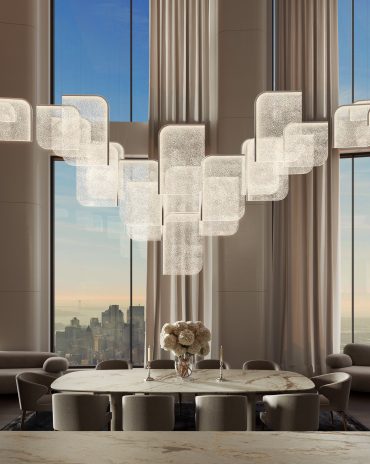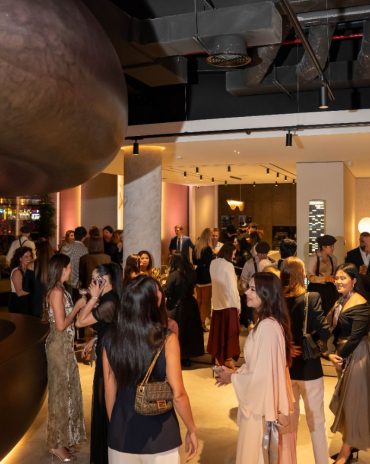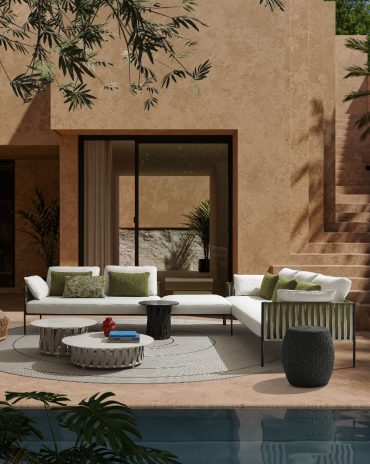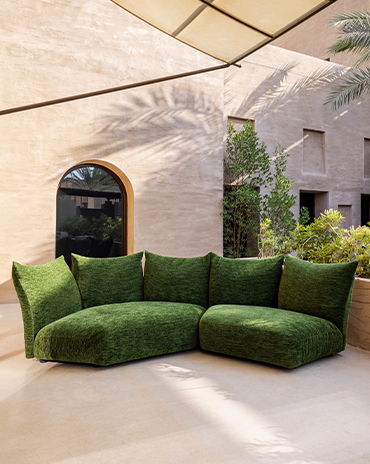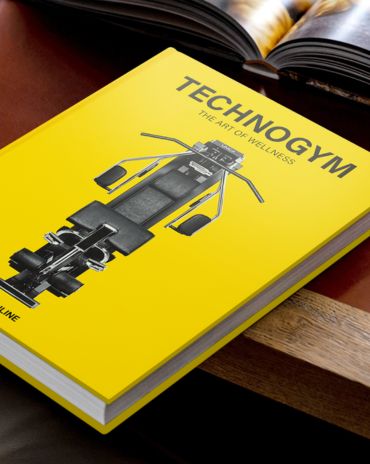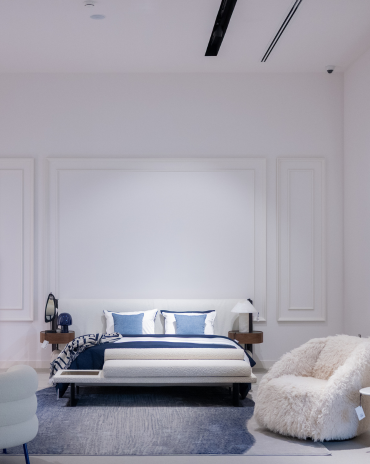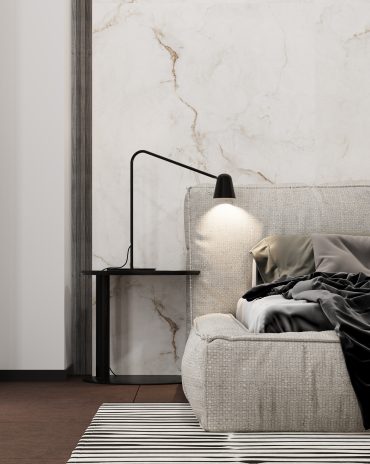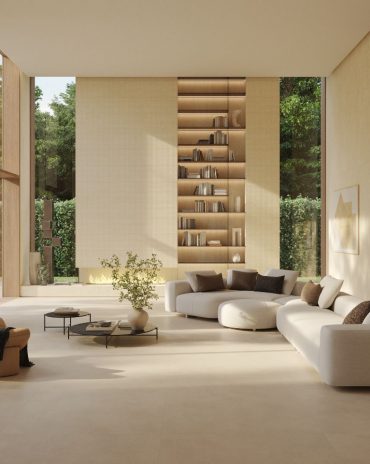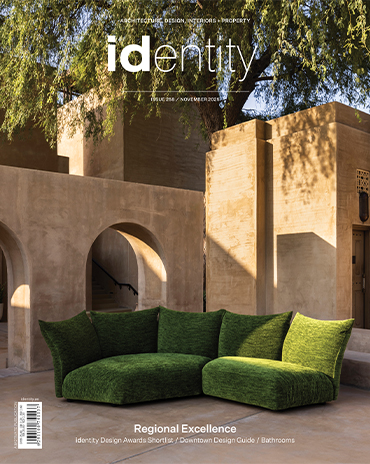Copyright © 2025 Motivate Media Group. All rights reserved.
Josafat Zalapa restaurant by FMA. is rooted in Mexican culture with oriental influences
The inception of the restaurant was inspired by the Japanese term “Omakase".
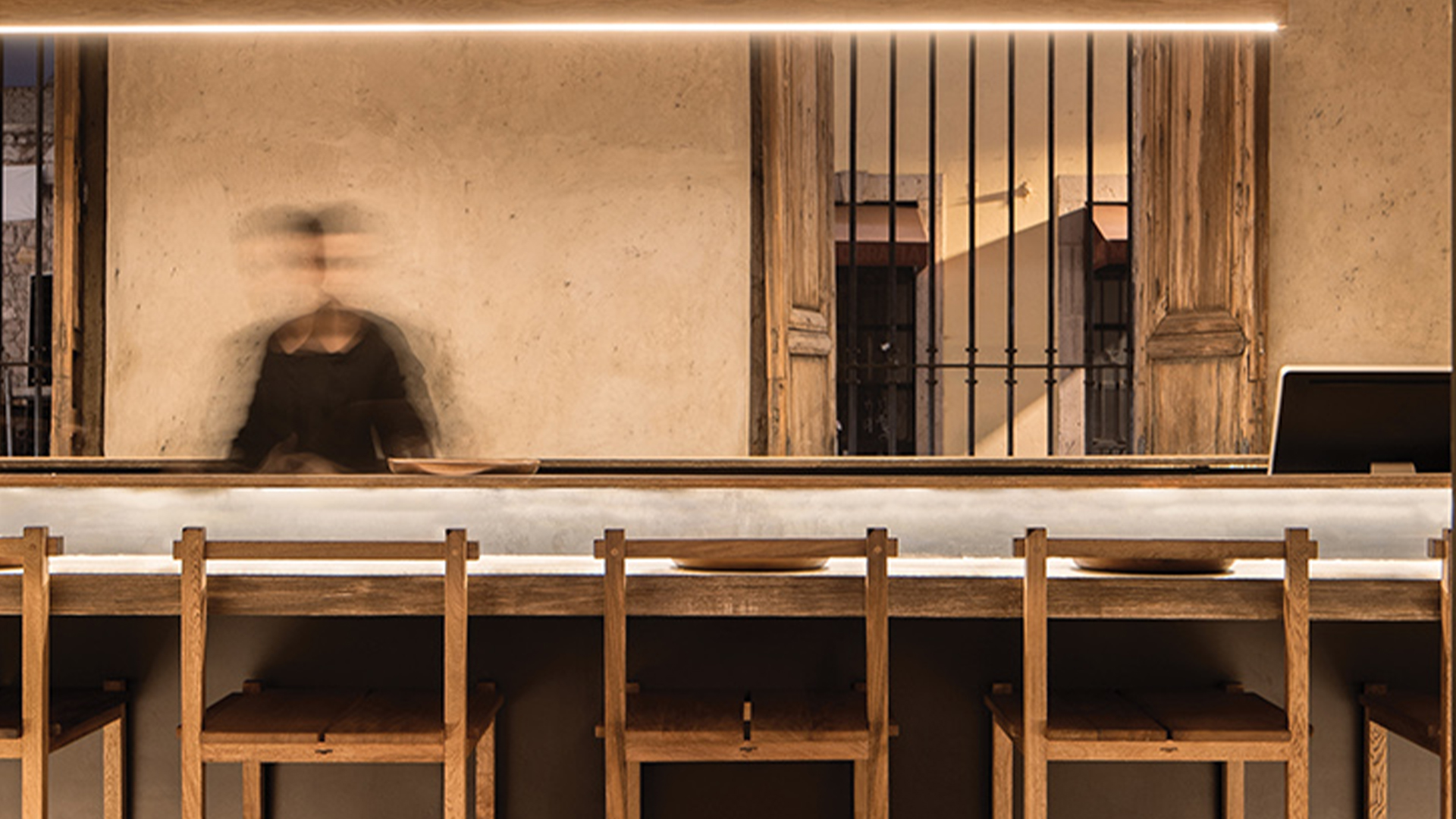
FMA. introduces Josafat Zalapa, a culinary haven harmoniously melding the culinary heritage of Mexican culture with Oriental influences, arising within a 19th-century house in the heart of Morelia City. The inception of the restaurant is rooted in the concept of crafting a groundbreaking dining ambiance, inspired by the Japanese term “Omakase,” which encapsulates the essence of “I trust you” or “the chef’s selection.” Through an exclusive dining encounter, patrons embark on a gastronomic voyage, engaging actively as they observe the crafting of their dishes.
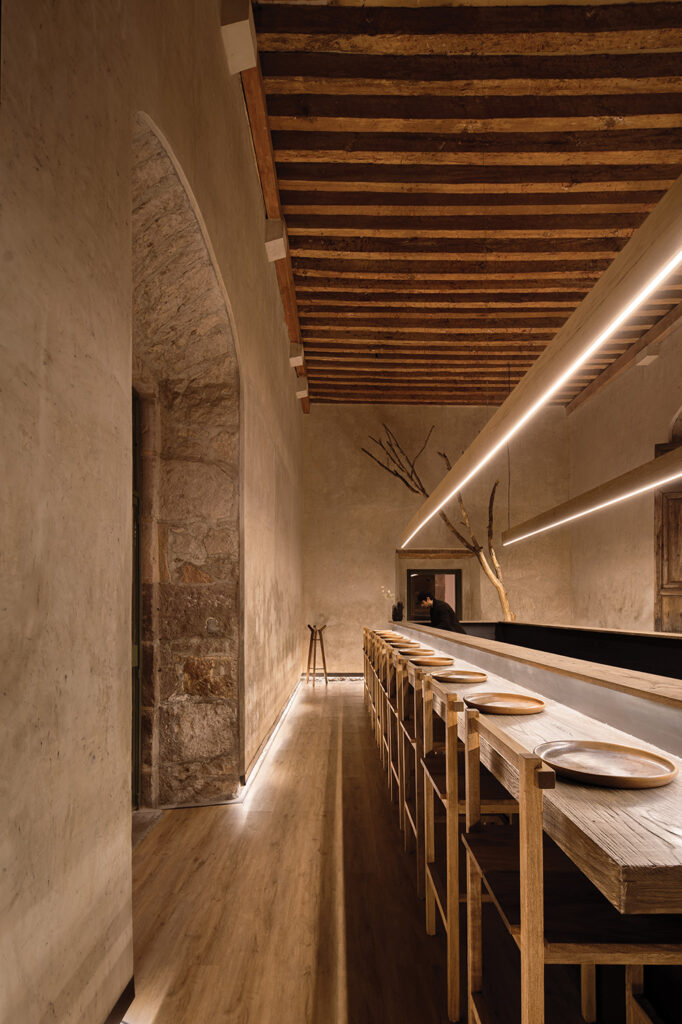
An elongated bar where patrons can gather around the chef. Photography by César Belio.
The user experience begins with access to the historic building, where visitors are welcomed by a corridor and a gallery leading to a cloister adorned with various artworks along its perimeter. In the center, a sculptural piece featuring dead vegetation alludes to the passage of time within the building.
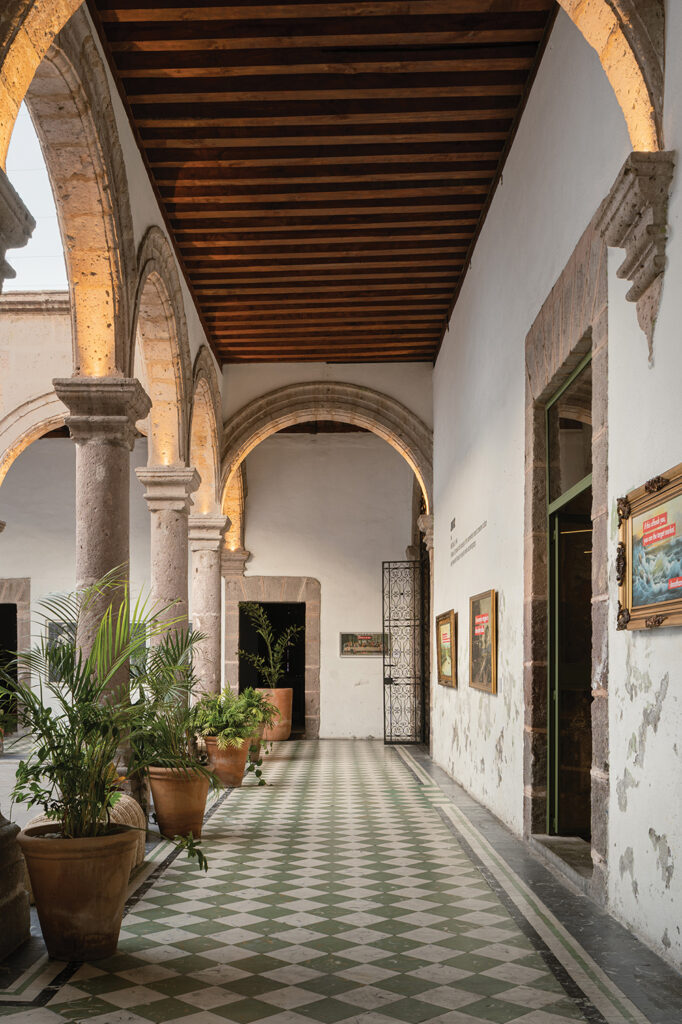
The corridor features multiple artworks and mimics a gallery. Photography by César Belio.
The architectural layout comprises two rooms adjacent to the courtyard, flanked by Baroque-style architectural elements. The main space houses a sculptural bar with 20 designer chairs, while a second room with a bar is subtly displayed on one side. As one enters the restaurant, the massive stone walls encase the project’s centerpiece: an elongated bar where patrons gather around the chef, preparing for the culinary spectacle. Through interior design, the project achieves a balance between the architecture of the past and contemporary elements expressed in the furniture, decor, and materials. This approach creates an introspective, elegant, and sober atmosphere.
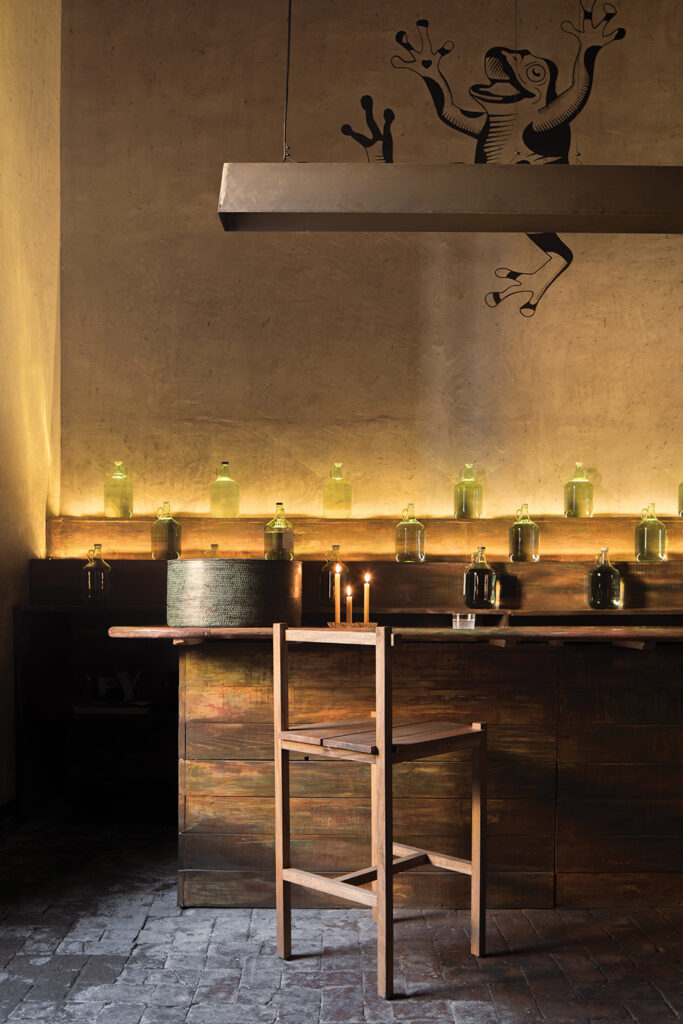
Past and contemporary elements are expressed in the furniture, decor, and materials. Photography by César Belio.
The concept of the bar further emphasizes the dishes prepared by the chef, while indirect lighting along the floor’s edge frames the existing limestone walls. This lighting highlights the layers of history that have been preserved over time, accentuating their architectural value. The design premise revolved around respecting the architecture of the place while subtly intervening in the interiors, achieving a timeless proposal that integrates seamlessly with the historical layers of the building. The material selection remained essentialist, incorporating wooden floors and pigmented cement coatings on the walls.
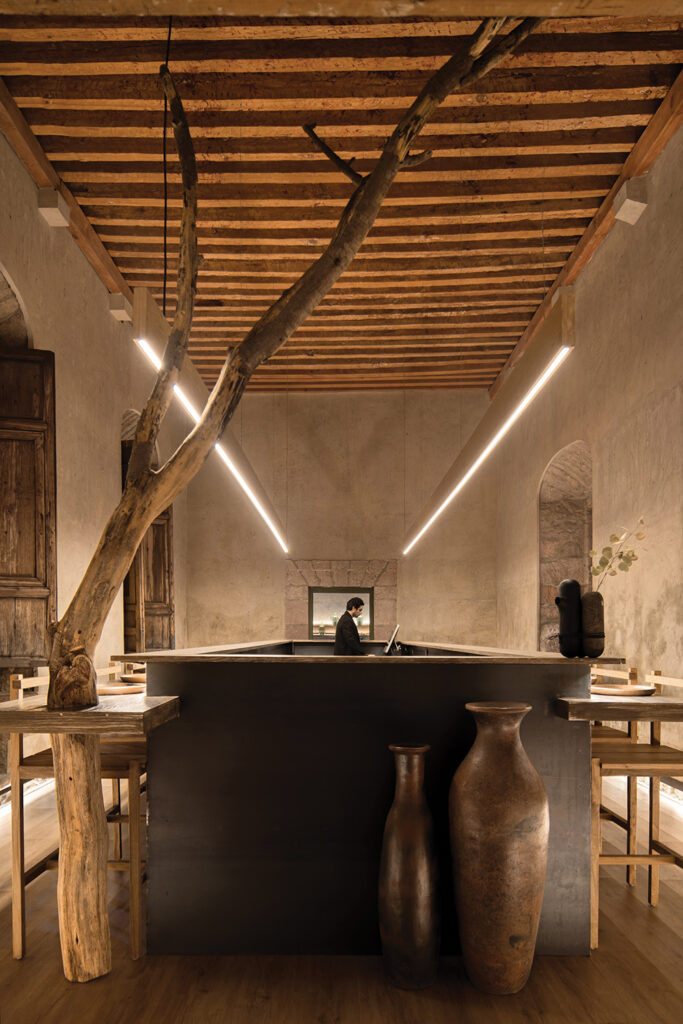
Photography by César Belio.
During the intervention, particular emphasis was placed on lighting design and furniture integration. This led to the custom design of each element, from the linear lamps that accompany the bar, to the chairs where diners will savor their meals.
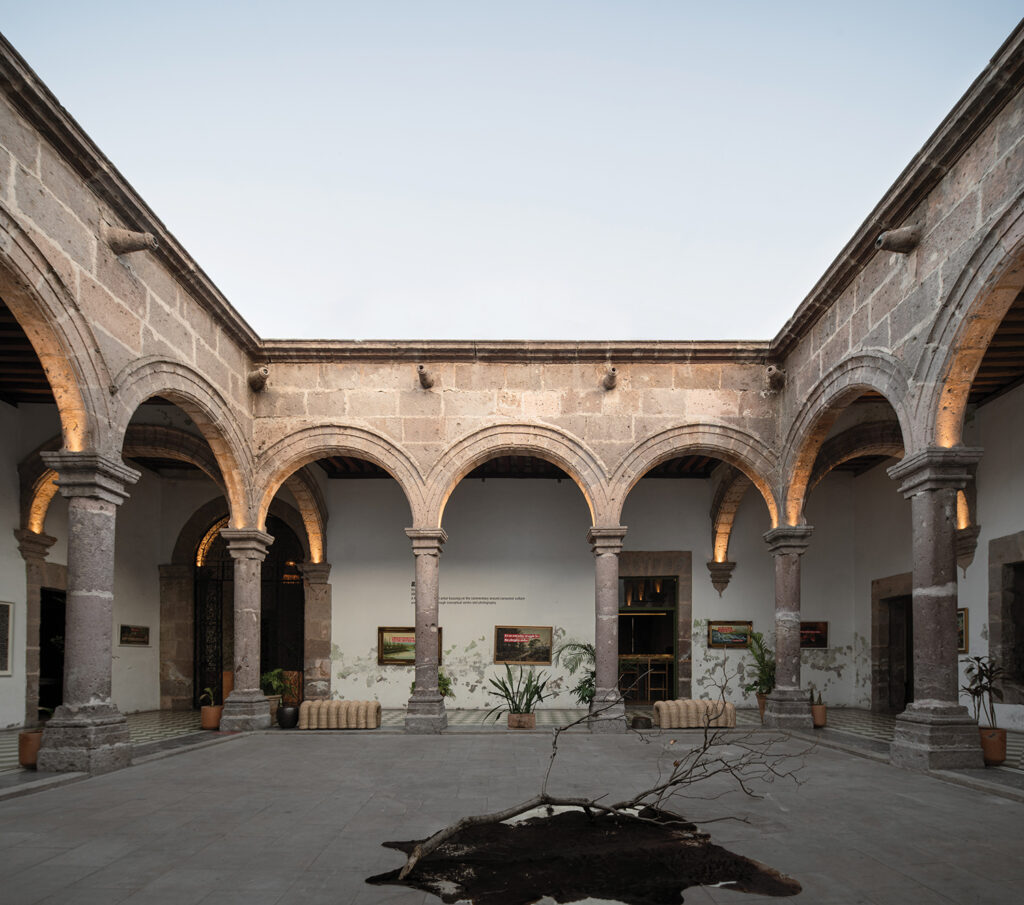
A sculptural piece featuring dead vegetation alludes to the passage of time within the building. Photography by César Belio.
Technical sheet
Architecture Office: FMA.
Architect in charge: Francisco Javier Méndez Rodríguez
Furniture: Axoque Studio
Photographs: César Belio
Gross Floor Area: 75 m2
Location: Morelia, Michoacán, Mexico
The Latest
Dubai Design Week 2025 Unfolds: A Living Celebration of Design, Culture, and Collaboration
The 11th edition of the region’s leading design festival unfolds at Dubai Design District (d3)
Preciosa Lighting Unveils ‘Drifting Lights’ at Downtown Design 2025
The brand debuts its newest 'Signature Design' that explores light suspended in motion
IF Hub Opens in Umm Suqeim
A New Destination for Design and Collaboration in Dubai
The Language of Weave
Nodo Italia at Casamia brings poetry to life
The Art of the Outdoors
The Edra Standard Outdoor sofa redefines outdoor living through design that feels, connects and endures
The Art of Wellness
Technogym collaborates with Assouline to release a book that celebrates the brand’s 30-year contribution to the fitness industry
The Destination for Inspired Living – Modora Home
Five reasons why you need to visit the latest homegrown addition to the UAE’s interiors landscape
Elemental Balance — A Story Told Through Surfaces
This year at Downtown Design 2025, ClayArk invites visitors to step into a world where design finds its rhythm in nature’s quiet harmony.
The identity Insider’s Guide to Downtown Design 2025
With the fair around the corner, here’s an exciting guide for the debuts and exhibits that you shouldn’t miss
A Striking Entrance
The Oikos Synua door with its backlit onyx finish makes a great impression at this home in Kuwait.
Marvel T – The latest launch by Atlas Concorde
Atlas Concorde launches Marvel T, a new interpretation of travertine in collaboration with HBA.
Read ‘Regional Excellence’ – Note from the editor
Read the magazine on issuu or grab it off newsstands now.



